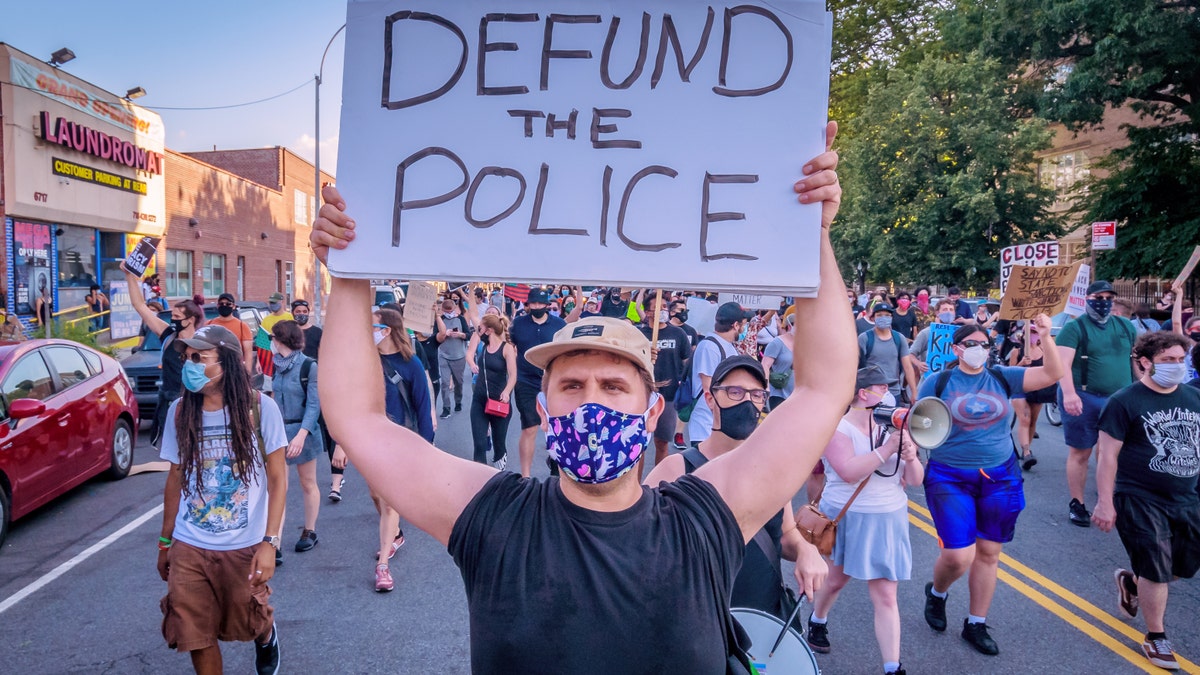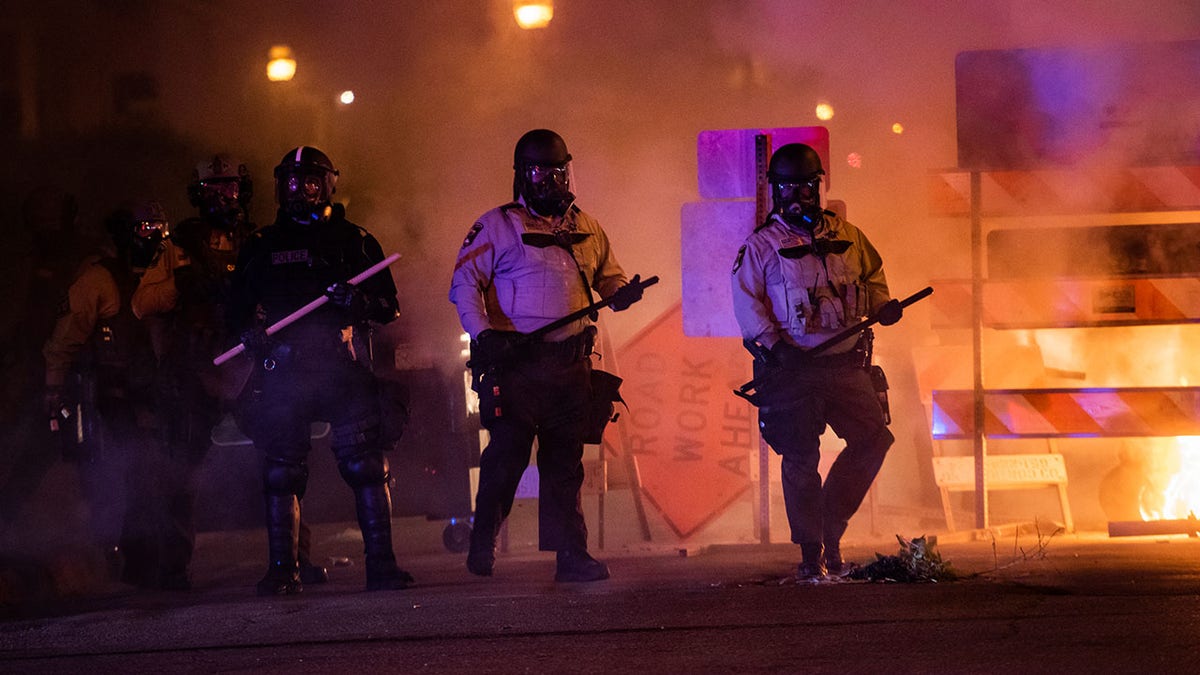Democrats slowly back away from 'disastrous' defund the police movement: Will Cain
Will Cain says defund the police movement rose with George Floyd protests and fell when communities experienced crime spikes on 'Fox News Primetime'
Fox News host Will Cain discussed the implications of Minneapolis, Minnesota, the "epicenter" of the defund the police movement, restoring millions of funds to law enforcement" on "Fox News Primetime" Monday.
"We have some good news in the liberal war against law enforcement," he said. "Minneapolis, the epicenter of the defund police movement, has done a complete 180. They have reversed over a year of policies to defund the police with their new city budget … restoring its funding to nearly the level it held before George Floyd was killed in 2020. So essentially, Minneapolis is right back where they started from."

Activists in Minneapolis are making a second attempt to get rid of the city's police department, more than a year after George Floyd's death at the hands of officers. Minneapolis Police Department/Facebook (Minneapolis Police Department/Facebook)
Cain added that although the movement was nearly overturned in Minneapolis in terms of policy, the effects remain with families of crime victims.
"In the months that the city council looked to hamstring their own police department, countless lives were needlessly lost in Minneapolis," he said. He pointed to the stories of Aniya Allen, 6, who was shot while eating McDonald's in her family car; and Trinity Ottoson-Smith's who was killed while jumping on a trampoline at her birthday party."

BROOKLYN, NEW YORK, UNITED STATES - 2020/07/12: A protester holding a Defund Police sign at protest. Pro-NYPD marchers during the ‘Back the Blue’ rally and march in Bay Ridge, Brooklyn. (Photo by Erik McGregor/LightRocket via Getty Images) ((Photo by Erik McGregor/LightRocket via Getty Images))
"These children were the cost of the Minneapolis City Council, chasing a trend a perverted fad to buy off votes in popularity," he said.
The city got to this point, Cain said, as a result of policies taken amid the looting and violence in anti-police protests during the summer of 2020.
CLICK HERE TO GET THE FOX NEWS APP
"It was a feel-good time for the left full of burning government buildings, police cars on fire, utter lawlessness … and to deal with that chaos engulfing their streets, liberal leaders had the great idea to defund their police departments … It didn't pan out [and] ended terribly," Cain said.

MINNEAPOLIS, MN - MAY 30: Riot police advances toward protesters at the intersection of E 31st St and S 3rd Ave on Saturday, May 30, 2020, in Minneapolis, MN. Protests in the wake of the death of George Floyd while in police custody has erupted across the country. (Photo by Salwan Georges/The Washington Post via Getty Images) (Photo by Salwan Georges/The Washington Post via Getty Images)
Cain added that any reasonable or "sentient" person could have predicted that reducing resources for law enforcement would not stop criminals but in fact would embolden them.
"I'm glad I'm happy for the people of Minneapolis that they're more safe today than they were before this movement," he said. "But how do you explain that to the citizens who lost their loved ones? How do you explain that? … Are they just collateral damage? The price to pay for being popular, incurring a little more … of [Democrats'] voting base?"










































